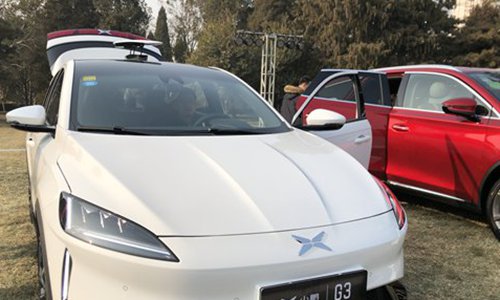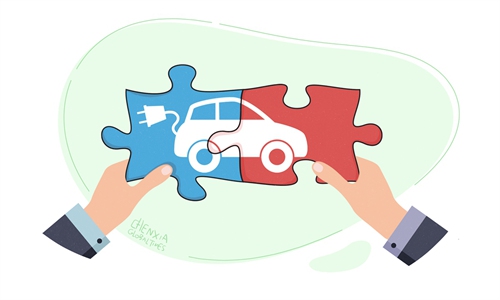
An XPeng G3 electric vehicle shown at the exhibition venue of the China EV100 Forum held in January in Beijing. Photo: Zhang Hongpei/GT
The China Chamber of Commerce to the EU (CCCEU) on Wednesday expressed strong concern and opposition to the European Commission’s launching an anti-subsidy investigation against Chinese electric vehicles (EVs), as announced by European Commission President von der Leyen on Wednesday.
"We strongly encourage the EU to treat the progress of China's electric vehicle industry with objectivity rather than resorting to unilateral trade measures that could obstruct the development and ramp up operational costs of Chinese electric vehicles within the European market," according to a statement issued by the CCCEU.
It urged the EU to ensure a fair, impartial and non-discriminatory business environment for foreign companies. Efforts to restrict products solely based on their country of origin runs counter to the EU's WTO commitments, the CCCEU said.
The comments came as Ursula von der Leyen announced on Wednesday that the EU is launching a probe into Chinese electric cars, claiming the price of imported Chinese vehicles is being kept "artificially low by huge state subsidies."
In response, the CCCEU noted that the edge of China’s EV industry isn't a product of what the European Commission called "huge state subsidies" but steadfast and accumulative innovations by Chinese enterprises.
Chinese EV makers, along with their upstream and downstream industry partners, have persistently pushed the boundaries of innovation. Their concerted efforts have led to their marked advantage in both the fiercely competitive home market and the global market, too.
They deliver high-end and cost-effective EVs that can cater to different market demand, earning them acclaim worldwide, including in European market, the CCCEU said.
According to the China Association of Automobile Manufacturers, China’s exports of new-energy vehicles reached 90,000 units in August, up 8.1 percent year-on-year.
From January to August, exports of new-energy vehicles reached 727,000 units, a year-on-year increase of 1.1 times.

